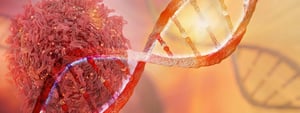We have known for a long time that a small number of cancer patients react in an extraordinarily effective way to treatment. These people, called exceptional responders, often with metastatic tumours, have a response to drugs that lasts on average at least three times longer than normal patients and also benefit from drugs that only “work” in less than 10% of patients.
This phenomenon, which has been noted for years, appeared sporadically with chemotherapy, but it has become evident since the introduction of immunotherapy drugs. Because with these drugs it is easier, in some respects, to measure the results and in certain cases, it happens that the response is particularly strong and results in tumours are being defeated once and for all.
Since 2014, a major project sponsored by the US National Cancer Institute, the NCI’s Exceptional Responders Initiative, has been trying to uncover the secrets of these people, and the first results are finally starting to come in. The scientific journal Cancel Cell has published the data of 111 cancer patients classified as exceptional responders, treated with therapies that ranged from classic chemotherapy to immunotherapy and radiotherapy.
Thus, the experts from the National Cancer Institute were able to start to outline several typical aspects of “exceptional” patients.
For each patient, the oncologists have analysed the genetic structure of the tumour and the micro-environment surrounding it, to understand if the super-efficient response to the various therapies could be attributed to a certain type of tumour DNA or to the environment itself (i.e. to so-called epigenetic phenomena), or to other elements.
The analysis of biopsies and other biological samples showed that, for just under one quarter of the “exceptional responders”, there were genetic mutations in the cancer cells that made the tumour more vulnerable to treatment, or there were different communication systems between the cells themselves (so-called signalling). Finally, the immune system of these patients was on average more efficient.
With regard to genetic mutations, the researchers identified, in particular, two patients who had variants of the BRCA 1 gene or the BRCA 2 gene (both associated with hereditary and dangerous forms of breast cancer, but rare in the forms of cancer that had affected the two patients) and showed that these mutations prevented the cancer cells from repairing the DNA damaged by the drugs: this is why the therapy had much more powerful effects than normal.
Also, in another two patients suffering from a brain tumour called glioblastoma, the overlapping of two rare genetic mutations had enhanced the effects of a chemotherapy drug, temozolomide.
In other exceptional responders, on the other hand, the particular involvement of B lymphocytes (those that then lead to the production of antibodies) was clearly visible.
The results of this study will have to be confirmed by more extensive research and will have possible repercussions on the diagnostic process (for example, by looking for mutations or other features in individual patients that make tumours weaker), as well as on the course of treatment chosen.
The researchers are therefore planning to design specific drugs to be combined with traditional ones (in the case of temozolomide, inhibitors of the same mechanisms blocked by the two genetic alterations) and to attempt to reproduce the conditions that make others exceptional in normal patients.
“As clinical researchers, we have a lot to learn from these patients, and they have a lot to teach us”, said Percy Ivy, who co-led the research, “The knowledge gained from studying exceptional responders will help move us closer to the goal of precision oncology.”

